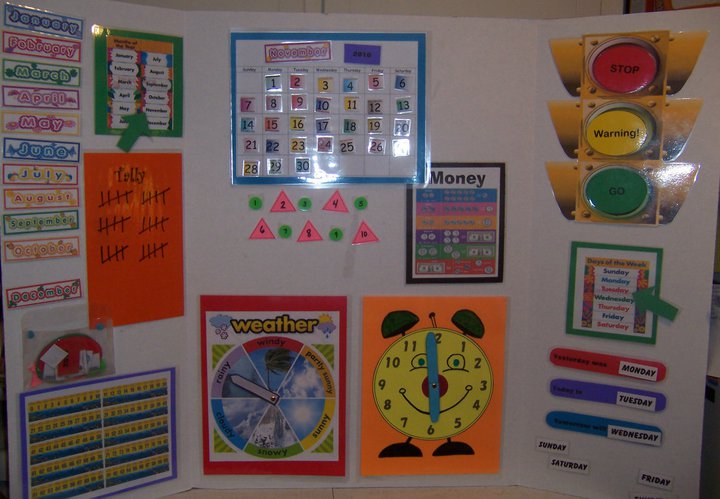Editor's note: Sonja Corbitt's home schooling FAQ continues this week with information on planning, time management, scheduling around a working parent's time frame--and much more! Visit Part 1 here. --Barb
There was a time I vociferously maintained that everyone should home school. I was ignorant and immature.
Homeschooling is not for every mom or every family, but when faced with the success of home schools and the profound privilege of educating one's own child, some parents become interested in the possibility of home education. For our family, it was the single best parenting decision we ever made.
But what are the everyday nuts and bolts? How do you do it? Here are the answers to some Frequently Asked Questions regarding home schooling.
[Tweet "Considering #homeschooling? Read Sonja Corbitt's FAQ on the nuts and bolts of home education."]
Doesn't it take a lot of time? What about planning and time management? It does take time. Far less than the 40-hour school week, hour or two of nightly homework, travel time to and from school, and extra-curricular activities and sports that students and parents of institutional schools already spend.
The first year is usually the most time-intensive as the parent develops instruction and organizational plans and routines. It might be necessary for everyone to drop unnecessary outside activities until the routine is easy and comfortable. Like everything else, maybe housework and dinner should be a family affair so that everyone has free time, and early bedtimes or rising times contribute to parents' mental health. A tidy house and family dinner can be the rule, not the exception, although visitors may be so astounded by the number of books one owns that they never notice the dust on the piano.
But I confess I was freaked out my first year because my son breezed through an entire day’s work in an hour or less. I rang up my friend with a Master’s in Education and asked her if I should give him busy work, and she was horrified I would even suggest it.
For the youngest pre K- 1st grade students, a science fair board with miniature calendar math resources works miracles in about ten minutes a day!
How do you make kids do their school work? The same way you "make" them take a bath or feed the dog. One who creates an interesting home school curriculum full of living books and resources has absolutely no difficulty motivating students to work. Isn’t part of the education mandate to make learners rather than consumers?
I remember the moment stumbling through syllables and reading mechanics suddenly clicked into actual reading. I felt like a BOSS that I had taught a human being to read, and I had never seen him so proud and excited to continue.
For students, you might buy a student planner for each child and write his assignments in for the week. We used student planners for years until I discovered that a daily list written on a regular spiral notebook with check boxes works better. Go figure! Presumably my kids appreciate ticking off the boxes and the sense of accomplishment it lends to their days.
When the work is dull, you might keep assignments short or subjects blocked. A child is created with the desire to learn and improve himself for his good. Home schooling emphasizes and nurtures this bent while teaching the child to accept and practice discipline as a way of life.
How do you home school with young children? Home school while holding the baby on the lap. Take advantage of nap times. Give young children their own school box (an empty diaper wipe box?) and fill it with things they are only allowed to play with during school time. When the toddler needs attention, attend to the toddler. That's what family is about. Older children work (fourth or fifth grade or so) independently most of the time. If there is a serious problem, cancel school for the day (or the month!) and revise the week's schoolwork schedule.
How do you know WHAT to teach? Research or buy grade-level scope and sequences online. We used BIG Workbooks as a guide each year until about the third grade. The Well Trained Mind is a popular resource.
Can both parents work and still home school? Parents forced into the workplace find free education and “daycare” in the public school, it is true. But many working home school parents alternate work schedules and share teaching responsibilities. Some have work-at-home arrangements, find flexible part-time employment, or run their own businesses. With organization and serious commitment, both parents can work, although two full-time jobs make it difficult. Usually for one parent, though, the job and the "stuff" can wait; children can't. It is definitely a sacrifice, but worth every second.
Don't you ever just get too tired to home school? Of course. Sometimes it is the parent, sometimes the student, but when one truly needs a break, one should simply take a break. February and March are consistently the times when everyone in education, whether public, private, or home school, is sick of school.
How do I know which curriculum is best for my family? There is a saying in the home school community, "You won't ruin them in one year." Much of home education is an experiment the first year or two. Curriculum manuals abound and can be helpful, but word of mouth is often the very best way to gauge the tone and feel of a course or curriculum. First curriculum choices are often made based on what parents remember from their own education and the strengths and weaknesses they discern in their students. If a curriculum is not working, sell it on eBay or Amazon.com and try another.
What do I do when my student doesn't "get it"? If a student is not ready for a concept, for whatever reason, he is simply not ready. First, research learning styles and different ways of presenting the concept online, then re-present the material. If he is still not "getting it," move on to something else and come back to it later. Often frustration arises when one attempts to force an issue or loses her temper. Remember that home education allows great flexibility to go at the student's pace. It is sometimes the parent who rushes the child in an effort to accelerate him and appear an exceptional teacher and parent.
How do you cover everything? Home schooling covers an unbelievable amount of work in very little time, but ultimately one can never cover everything there is to learn or that is important. Education is about inspiring children to a lifetime of learning and teaching them to think independently. One covers what is essential, and anticipates a lifetime of opportunities to learn more.
Don't they get bored staying home all the time? Children need time for extravagant outdoor exploration. Some parents deliberately remove media simply to create "boredom" and force the creativity that automatically ensues.
Fellow home schoolers, your sisters want to know: What are your homeschooling hints, tricks, nightmares, and joys?
Copyright 2016 Sonja Corbitt
About the Author
Sonja Corbitt
Sonja Corbitt is the Bible Study Evangelista, a Catholic Scripture teacher with a story teller’s gift – a Southern Belle with a warrior’s heart and a poet’s pen. Catch her newest study series on Healing the Father Woundnow. . What's an "evangelista"? Find out at biblestudyevangelista.com . Instagram | Pinterest




.png?width=1806&height=731&name=CatholicMom_hcfm_logo1_pos_871c_2728c%20(002).png)
Comments